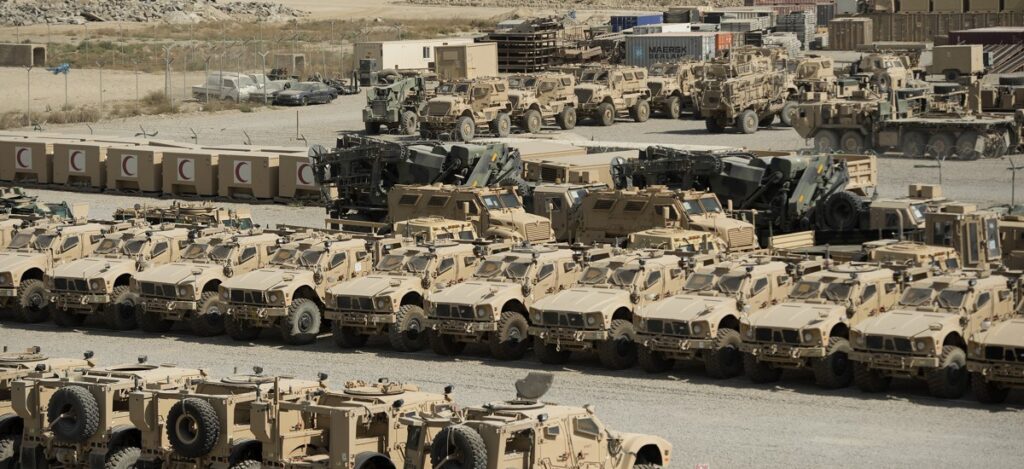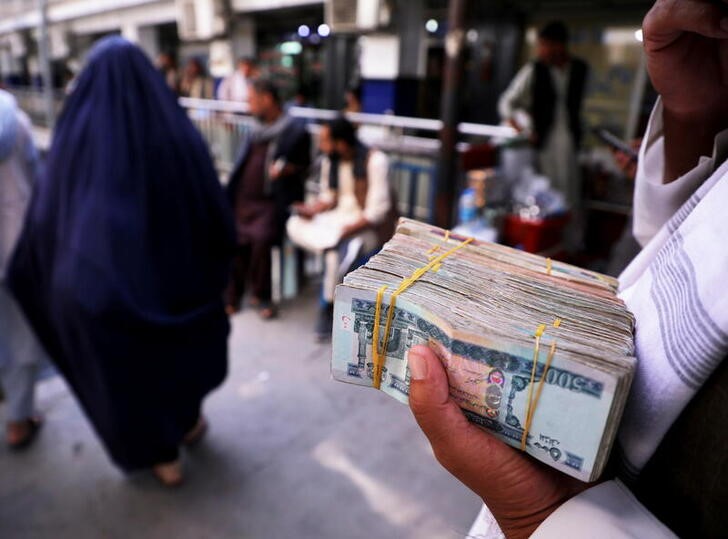KABUL – The Taliban government has outrightly rejected a pre-Trump proposal suggesting that Afghanistan return abandoned U.S. military hardware in exchange for formal diplomatic recognition and the release of billions of dollars in frozen Afghan assets. Taliban officials have instead emphasized that the country’s financial reserves rightfully belong to the Afghan people and should never be subjected to political conditions.

The proposal, which surfaced in diplomatic circles as speculation around a second Trump administration grew, suggested that returning U.S. military equipment left behind during the 2021 withdrawal could pave the way for official engagement between the two sides. However, Taliban spokesman Zabihullah Mujahid dismissed the idea, stating that Afghanistan will not barter its sovereignty for diplomatic favors.
“The assets of Afghanistan belong to the Afghan people. These funds must be released unconditionally and should not be used as leverage for political gains,” Mujahid said in a statement. “As for the military equipment, it was left behind due to America’s mismanagement. We are under no obligation to return it.”
Frozen Assets: A Sticking Point in U.S.-Taliban Relations
Following the Taliban’s takeover of Afghanistan in August 2021, the United States froze nearly $7 billion in Afghan central bank assets held in U.S. financial institutions. The move, aimed at preventing the Taliban from accessing substantial financial resources, has since become a significant point of contention in relations between Kabul and Washington.
Taliban officials have consistently demanded the release of these funds, arguing that they are essential for stabilizing Afghanistan’s fragile economy. International humanitarian organizations have echoed these concerns, warning that continued economic isolation could deepen the country’s humanitarian crisis.
However, successive U.S. administrations have maintained that unfreezing the assets should come with assurances, particularly regarding human rights, counterterrorism cooperation, and the establishment of an inclusive government.

Taliban Open to Talks But on Their Own Terms
While rejecting the military equipment-for-diplomatic-ties deal, the Taliban has signaled a willingness to engage in lengthy negotiations with the U.S. to address multiple outstanding issues.
“We are open to diplomatic discussions that serve the interests of Afghanistan and the region,” said a senior Taliban official speaking on condition of anonymity. “We want constructive engagement, but it must be based on mutual respect and without preconditions that undermine Afghanistan’s sovereignty.”
The statement marks a shift in the Taliban’s approach, indicating a readiness for dialogue while refusing to bow to external pressure. With mounting global concerns over Afghanistan’s economic instability and security situation, a renewed diplomatic process could offer an avenue for progress.
What Comes Next?
With the U.S. presidential elections looming, the possibility of a second Trump administration has raised speculation about potential shifts in U.S. foreign policy, particularly regarding Afghanistan. Trump has previously criticized the Biden administration’s handling of the withdrawal and has expressed interest in renegotiating terms with the Taliban.
However, whether the Taliban will find common ground with the U.S. remains uncertain. The group has continued to assert its political independence, and its rejection of a deal tied to military hardware underscores its reluctance to make major concessions.
For now, Afghanistan remains diplomatically isolated, with only a handful of countries formally recognizing the Taliban government. The coming months will determine whether negotiations with the U.S. gain traction or if the current stalemate continues.